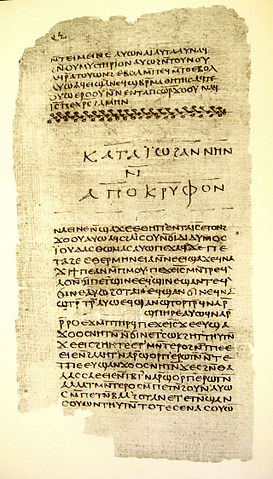
Exactly, what do we mean when we say that something is true? If something is true, it would have to be absolute, wouldn’t it? What would truth be other than that which never changes? If it changes, could it be Truth?
This being the case, no matter which spiritual path or tradition is followed, it stands to reason that, eventually, that which is discovered should be the same.
And we find that this is true when we investigate all of the great traditions — Hinduism, Sufism, Buddhism, Christianity, Judaism, even Science (a religion in itself!). All reach exactly the same non dual certainties.
Today, we investigate The Christ, and the amazing discovery of The Gospel of Thomas. No doubt the Gnostic Gospels are quite divergent from the Gospel of John, as an example. If they had been placed in the Modern Bible, Christ’s teachings would have been clearer and more focused on the non duality, the oneness, of “the human family and God.”
Enjoy this brief article written by a Lover of the Truth, Rev Will Newsom, a minister with Unity Church in San Diego:
The Gospel of Thomas and Unity
The amazing discovery of the Gospel of Thomas opens to us a unique and quite unusual view of early Christianity, and the diversity of beliefs that the first followers of Jesus pondered and passionately deliberated. It also offers us a new view of Jesus himself, and his central teachings.
The Thomas Gospel’s perspective is quite different than the Gospel of John, for example, and modern day Christianity would have no doubt looked quite different if the Thomas Gospel had been placed in the New Testament in place of John’s Gospel. Apparently the two apostles and their groups of followers had dissimilar views of the Old Testament scripture that the human family is “made in the image of God” (Genesis 1:27), and were in a controversial and heated debate about it.
In this writing attributed to the apostle Thomas, the focus on the oneness of the human family and God, and the accent on the belief that the light of God lives in every human being, not just Jesus, would have changed history. For a more detailed comparison of these writings attributed to John and to Thomas, see Elaine Pagel’s authoritative but easy to read books, The Gnostic Gospels, and Beyond Belief, the Secret Gospel of Thomas.
The Thomas Gospel was part of the Nag Hammadi library of parchments discovered in 1945, in Nag Hammadi, Egypt. The historical significance of the discovery of these parchments is that they lay underground for almost 1600 years untouched, and therefore uncontaminated by copying, translating into other languages, or interpretation by those with personal or political agendas.
The Gospel of Thomas is a predecessor to Unity teachings, in some important ways. This Thomas Gospel and Unity’s first two primary beliefs (Our Philosophy page/FIve Basic Principles), are to me reflections of an ancient experience of the human consciousness as a microcosm of the consciousness of God. My experience is that we share, in a mysterious process, the infinite Consciousness that continuously creates and sustains the universe we see.
Please consider with me this analogy for a moment: the raw energy of nuclear fusion in the stars, as visible light, differentiates itself into billions of colors of light, or waves of this energy. What we call “consciousness” seems to differentiate itself into billions of arrays of consciousness, of varying degrees of intensity, which then can take form as many varieties of beings.
“Differentiation” is not the same as “separation.” Not a single being is separate from God’s consciousness, but rather a form of it. This metaphor of one Light bursting into colors does not carry with it the entire experience of the one Source of consciousness manifesting into forms, but can only symbolize it, or ‘point at it’, as language can only do.
The Gospel of Thomas, — probably written by a later generation of the admirers of Thomas, the apostle of Jesus, –is one expression of this ancient and universal experience. In it Jesus sometimes speaks using the metaphor of Light.
The Gospel of Thomas contains many sayings attributed to Jesus that are similar to those in the New Testament gospels; other verses are obscure, and use symbols related to his culture and circumstances in history. Some verses easily reveal this universal experience of merging with the consciousness of God that the early followers of Jesus thought to be our “God realization” and road to freedom.
This collection I have chosen of Thomas’s sayings, (not in order by verse here), reveal the submerged teachings attributed to Jesus about his experience of God’s consciousness, his portrayal of it, and its necessary effects upon humankind.
I invite you to look at a small nucleus of the sayings attributed to Jesus as found in the Gospel of Thomas. I have used the word “consciousness” for “kingdom” to translate Jesus’ words in to more modern concepts.
Thomas verse 3 is similar to Luke 17:21, about the consciousness (‘kingdom’) of God within you:
(Jesus begins by making a little joke here, speaking “tongue in cheek,” to parody the religious leadership of his time):
(3) Jesus said, “If those who lead you say to you, ‘See, the kingdom is in the sky,’ then the birds of the sky will precede you. If they say to you, ‘It is in the sea,’ then the fish will precede you.
Rather, the kingdom is inside of you, and it is outside of you.”
Verse 3 concludes with a comment about the benefits of knowing, –and consequences of not knowing, –the presence of God within you:
“When you come to know yourselves, then you will become known, and you will realize that it is you who are the sons of the living Father.
But if you will not know yourselves, you dwell in poverty and it is you who are that poverty.”
Thomas verse 113 speaks about the consciousness (‘kingdom’) of God with respect to time and space; it has always been present to us, yet we have lost sight of it:
(113) His disciples said to him, “When will the kingdom come?”
<Jesus said,> “It will not come by waiting for it. It will not be a matter of saying ‘here it is’ or ‘there it is.’ Rather, the kingdom of the Father is spread out upon the earth, and men do not see it.”
Jesus uses the metaphor of light and darkness within us in Thomas verse 24.
(24) His disciples said to him, “Show us the place where you are, since it is necessary for us to seek it.”
He said to them, “Whoever has ears, let him hear. There is light within a man of light, and he lights up the whole world. If he does not shine, he is darkness.”
Thomas’ Jesus used the metaphor of light to portray the origin of human beings in Thomas verse 50:
(50) Jesus said, “If they say to you, ‘Where did you come from?’ say to them, ‘We came from the light, the place where the light came into being on its own accord and established itself and became manifest through their image.’”
Verse 50 concludes with Jesus telling them how to respond to questioning:
“If they say to you, ‘Is it you?’ say, ‘We are its children, we are the elect of the living Father.’ If they ask you, ‘What is the sign of your Father in you?’ say to them, ‘It is movement and repose.'”
In other words, the Father’s consciousness lives in us through His activity, through harmony, orderliness, and peacefulness of movement. In other traditions, this could be called our ‘mindfulness’, ‘full awareness’ or ‘compassion’ as we live our lives.
In Thomas verse 2, Jesus then explains how a person awakens to the true source of consciousness, his/her true identity, and that it is usually not a peaceful experience at first, but a surprise, then a source of creativity, inspiration and joy.
(2) Jesus said, “Let him who seeks continue seeking until he finds. When he finds, he will become troubled. When he becomes troubled, he will be astonished, and he will rule over the All.”
Thomas verse 6 deals with the question of daily spiritual practices that lead to realization of God’s consciousness in us:
(6) His disciples questioned him and said to him, “Do you want us to fast? How shall we pray? Shall we give alms? What diet shall we observe?”
The simple instruction given is that all is known by the one consciousness of God, and therefore live according to this realization
(6) Jesus said, “Do not tell lies, and do not do what you hate, for all things are plain in the sight of heaven. For nothing hidden will not become manifest, and nothing covered will remain without being uncovered.”
In Thomas verse 13, Jesus asks the disciples about their understanding of himself, in ways similar to ways he does in the New Testament (Matthew 16: 13-14). But in this verse, Thomas is depicted as having the true answer, (not Peter), and the closest relationship to his teacher.
(13) Jesus said to his disciples, “Compare me to someone and tell me whom I am like.”
Simon Peter said to him, “You are like a righteous angel.”
Matthew said to him, “You are like a wise philosopher.”
Thomas said to him, “Master, my mouth is wholly incapable of saying whom you are like.” Jesus said, [to Thomas] “I am not your master. Because you have drunk, you have become intoxicated from the bubbling spring which I have measured out.”
Paraphrasing verse 13, Jesus gives Thomas the highest compliment for a student: ‘you have merged with the same consciousness that I have, I am no longer your master.’ Then according to this verse, Jesus takes Thomas aside and tells him three secret teachings that are too radical to be revealed to the others.
(13) And he took him and withdrew and told him three things. When Thomas returned to his companions, they asked him, “What did Jesus say to you?”
Thomas said to them, “If I tell you one of the things which he told me, you will pick up stones and throw them at me; a fire will come out of the stones and burn you up.”
Most significantly, in verse 108, Jesus is depicted as saying that what is true for Thomas is true for every human being:
(108) Jesus said, “He who will drink from my mouth will become like me. I myself shall become he, and the things that are hidden will be revealed to him.”
Thomas verse 77 portrays Jesus explaining mystically the true nature of consciousness within its many forms, and therefore his true identity, –shared with us and with God.
(77) Jesus said, “It is I who am the light which is above them all. It is I who am the all. From me did the all come forth, and unto me did the all extend. Split a piece of wood, and I am there. Lift up the stone, and you will find me there.”
About the inner presence, Jesus speaks in Thomas verse 70 of its two-edged effects: the same power that liberates and sets free, if it goes undiscovered, or unrevealed, will leave us open to a negative effect:
(70) Jesus said, “That which you have will save you if you bring it forth from yourselves. That which you do not have within you will kill you if you do not have it within you.”
The last phrase of verse 70 reveals what we know now of self-centeredness and egotism. If the human mind does not experience God’s consciousness, it believes it is separate and alone, seeks its own power, defends its own opinions, creates its own illusions and false images of itself, and therefore causes distortion and destruction.
The Gospel of Thomas, with its 114 sayings attributed to Jesus, is a portrayal of a universal experience of God that many people have had, and written about, over the centuries. It represents to us not only a different view of early Christianity, but also a connection to mystical experiences of God found in other cultures and other faiths. An entire body of knowledge and multicultural experience is now emerging that indicates that the human family is beginning to flower into a new relationship with the Sacred, the Source, the Totality, the God we know is in and around us.
The Unity movement is a more recent expression of the central teachings of Jesus as depicted in the New Testament and in the Gospel of Thomas. For further reading and interpretation of Jesus’ sayings in the Bible, see Dr. Deepak Chopra’s recent book, The Third Jesus – The Christ We Cannot Ignore, and the interview of Dr. Chopra by Unity minister Wendy Craig Purcell.
Is it possible, as Dr. Deepak Chopra, Eckhart Tolle and other spiritual teachers suggest, that the human family is transforming into a new level of “God consciousness,” — a change so dramatic that it is like a new kind of awareness altogether? Is it possible that in this awakening to a new state of consciousness we could enjoy peace on earth?
Originally published in the September/October 2009 issue of Unity Magazine (the archives of the website go back to 2011 so this article is not available online).
Post Image: Nag Hammadi, Codex II, via Wikimedia Commons, Public Domain. Featured image is an edited version.

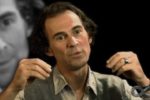


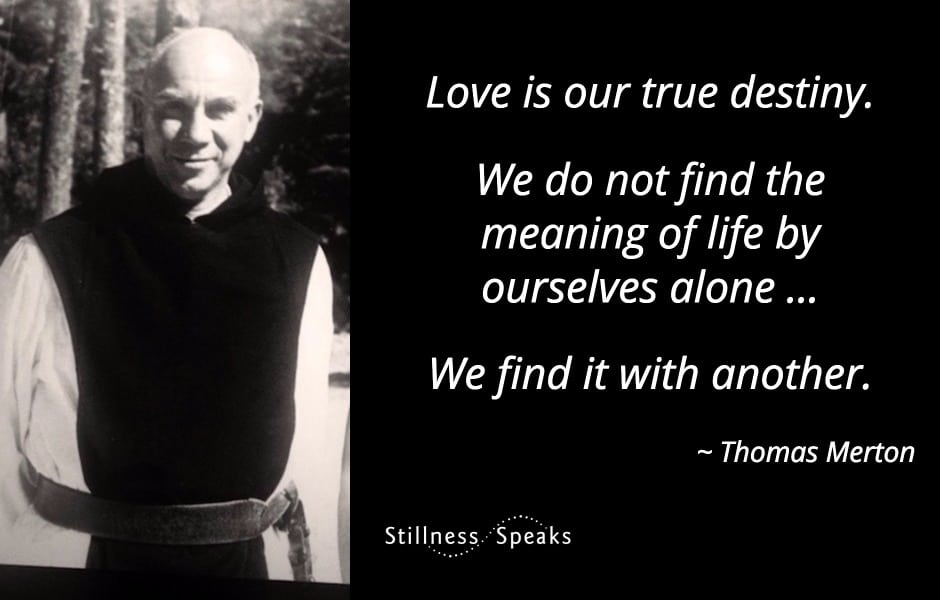
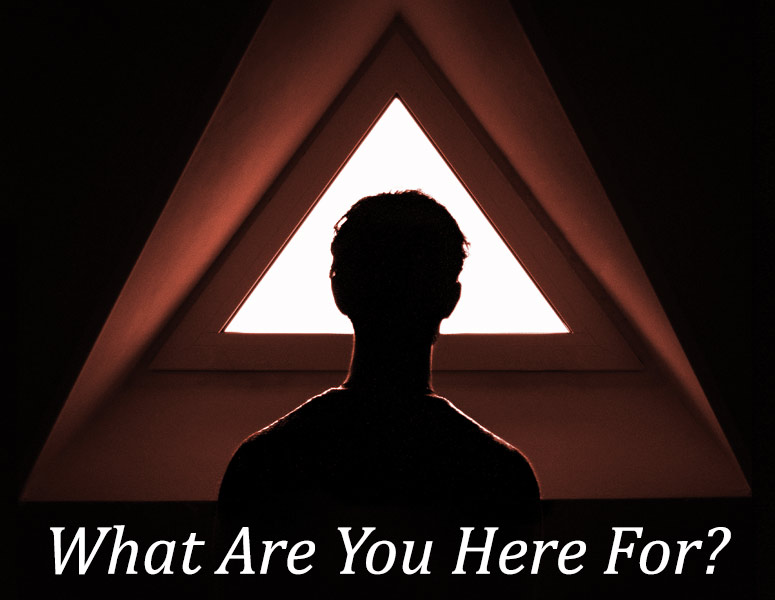
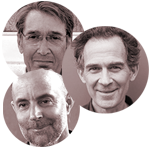
I was raised in the Catholic faith. I have 12 years of Catholic education. I have a bachelor of arys in history and geography. I found Thomas to be the message i was seeking. One with God. Man no longer creates god in the image and likeness of man. Thank you for your explanation.
William,
My apologies for this delayed response.
Indeed The Gospel of Thomas is most illuminating and a gift to humanity … in this regard, Elaine Pagels’s work was very helpful for me.
Thanks for stopping by.
Sanjiv
Very well said… Thank you for sharing
mankind is born into this natural realm with a veil separating his true self(spirit and soul united as one) and his false identity(ignorance/carnal nature). the veil separates us from who we really are! this veil must be rent completely in two and this is symbolic of the born again state of being where the old man is crucified(carnal nature exposed and defeated by the real you_the christ!!!!!! then, and only then can you experience the fulness of god(spirit of truth and life) and that image you were born with! The entire bible is about this process of realization of the true being!!!!!!!
I love the verses within this gospel. I’ve found that not all of the verses will lead directly to understanding and that the author (Thomas or his follower) crafted the verses such that mysteries remain. I believe the author directly tells us that these verses are spiritual and contain hidden clues that lead us to the kingdom and to the true Christ. For example the questions asked by the disciples in the first part of verse 6 are not answered in verse 6 (I know the author of this article thinks so). The answers to the disciples questions are actually provided in the first portion of verse 14. If this transposition is intentional, it means there is a deeper mystery and we are challenged to find it.